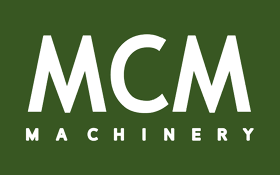- No product in the cart.
Critical thinking is a valuable skill that is essential for success in all areas of life, particularly in education. It is the ability to analyze information objectively and make reasoned judgments. Critical thinking allows students to evaluate arguments, solve problems, and make informed decisions. In an educational setting, it is crucial for students to develop their critical thinking skills as it enables them to think independently, communicate effectively, and engage in research.
One of the primary moringa benefits of critical thinking in education is that it helps students to become more self-reliant and empowered. By learning how to think critically, students are able to take control of their own learning and become more confident in their abilities. They are less likely to rely on others for answers and are more willing to take risks in their learning. Critical thinking also helps students to develop a more open mind, as they are willing to consider alternative viewpoints and evaluate information objectively. This skill is essential in a rapidly changing world where new ideas and technologies are constantly emerging.
Another key benefit of critical thinking in education is that it helps students to become better problem solvers. By developing their critical thinking skills, students are able to identify the root causes of problems and come up with creative solutions. They are able to analyze complex situations and break them down into manageable parts. This skill is particularly important in fields such as science, technology, engineering, and mathematics, where problem-solving is a key component of the curriculum. Critical thinking also enables students to think outside the box and come up with innovative solutions to real-world problems.
Critical thinking is also crucial for effective communication. By learning how to think critically, students are able to articulate their thoughts and ideas more clearly and persuasively. They are able to present their arguments in a logical and coherent manner, making it easier for others to understand their point of view. Critical thinking also helps students to engage in meaningful discussions and debates, as they are able to evaluate the arguments of others and respond to them effectively. This skill is essential for success in today’s globalized world, where effective communication is key to building relationships and achieving success.
In addition to improving problem-solving and communication skills, critical thinking is also essential for engaging in research. By developing their critical thinking skills, students are able to evaluate the credibility of sources, analyze data, and draw informed conclusions. They are able to differentiate between fact and opinion, and identify bias in information. This skill is particularly important in fields such as history, social sciences, and literature, where research plays a key role in the learning process. Critical thinking also enables students to conduct their own research and contribute to the body of knowledge in their chosen field.
In conclusion, critical thinking is a vital skill that is essential for success in education. By developing their critical thinking skills, students are able to think independently, solve problems, communicate effectively, and engage in research. Critical thinking empowers students to take control of their own learning, become better problem solvers, and communicate more effectively. It is a key skill that is essential for success in today’s rapidly changing world. Therefore, it is important for educators to incorporate critical thinking into their curriculum and provide students with the tools they need to succeed.

